
views
Getting an Education

Graduate secondary/high school. You will need to at a minimum have a secondary/high school degree in order to get the further education necessary to become a teacher. In some countries, certain grades from these school years are necessary. In other words, the better you do, the better your chances.
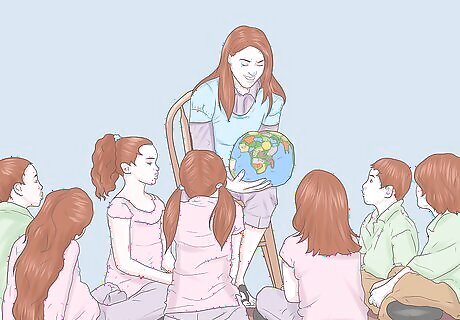
Get experience working with kids. Most teaching programs won't even consider admitting you if you don't have a reasonable amount of experience working with kids. Volunteer in a classroom, doing Big Brothers, Big Sisters, or get a job at a daycare or other child-friendly facility.

Graduate from university. You will need to get a higher degree beyond the basic secondary/high school degree. This should preferably be a degree in education, but some countries and states have a bit of a leeway on that. Find out the requirements for your area. Again, the better your grades, the better your chances. You can also get a Masters degree, but you don't need this to become a teacher. Some people get their Masters degrees during their first few teaching years.
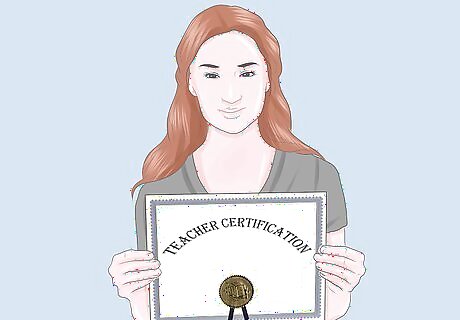
Get teacher certification. There are usually a series of tests you will need to complete in addition to your degree, which will allow you to become a teacher. Complete these tests and anything else necessary to get your certification.
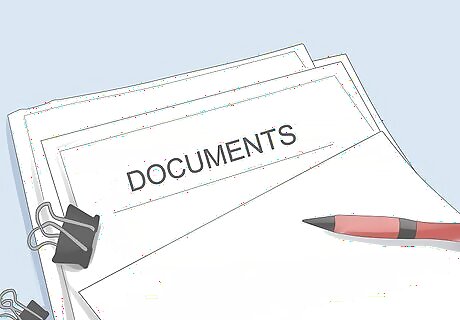
Complete other requirements. Usually, a period of student teaching is necessary before you can get your certification. There may also be other requirements as well, however. Most areas will require, for example, a background check and fingerprinting. All necessary requirements will be made clear to you upon completion of your certification.
Deciding Where to Teach

Teach at a public school. This is the basic, state-funded school where the majority of students will be found. This requires the most amount of effort and training but tends to lead to more secure employment and benefits.

Teach at an at-risk school. At-risk schools are low-income schools where the students are at risk of falling into a life of drugs or crime, never finishing school, and generally going on to very hard lives. Often times, these schools have students who are second-language learners (ELLs). Teaching at schools like these can be more rewarding but is also more challenging and dangerous. If you go on to teach at schools like these, there is the possibility of your student debt being forgiven. Many programs like these are in-place across the world.

Teach at a private school. Private schools are those run by companies or churches which often require perhaps a better education but often fewer hoops to jump through. A formal certification may not be necessary, but a high degree often is. These teaching jobs can pay better and the students will generally be better behaved.

Teach at a college. If you find that perhaps children aren't right for you, you can teach at a college instead. This usually requires at least a Masters degree, and most times a PhD. The pay is sometimes better, but the teachers have fewer resources available to them.
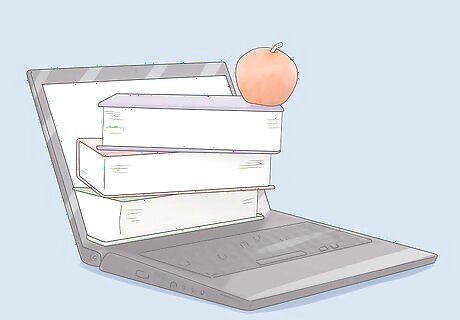
Teach at an online school. If you want to avoid getting proper credentials but you have a degree in an appropriate field, you can get a job as a teacher at an online school. This will probably not pay as well, there will be less job security, and you may not have access to benefits, but you can work from home and your schedule may be more flexible.

Be a private tutor. If you find that these routes are all too challenging for you, you can also just be a private tutor. You can join a tutoring center or you can work for yourself. This does not pay well but provides much more flexibility and one-on-one contact.
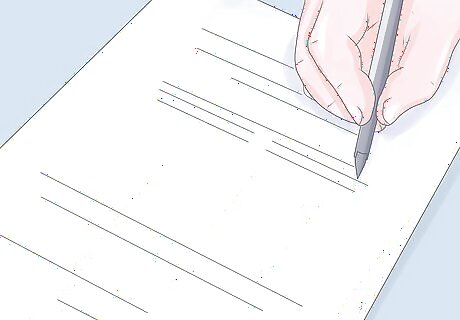
Have practice as a teacher, how you plan to handle problems and other information about your process.

Write a letter of intent. This is a letter you write stating your wish to apply for a particular position. Only include this if it is asked for.
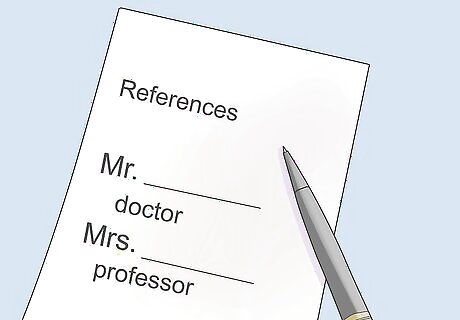
Have a list of references. These are crucial for getting a job. Have your references written out and formatted properly. Also, make sure that all of your references know you're using them as a reference!

Compile samples of your work. Get samples of lesson plans you've written, your students' work, sample items you've used in lessons, and books you like to work with in your classroom. The schools will wish to see this material.

Watch out for other requirements. Every school, area and country have different requirements for applying teachers so look out for other materials that may be called for in the application.

Apply for positions. You can find positions through the district website, non-profit organizations, job fairs, and other places as well. It depends on the type of position you're looking for. Most teaching programs will have resources to help you find a job when you graduate.

Ace your interviews. This is important. Go in looking like a pro and make a great impression. You can be the most qualified teacher in the world but if you have a giant stain on the front of your shirt and you show up late, you're not getting the job.




















Comments
0 comment